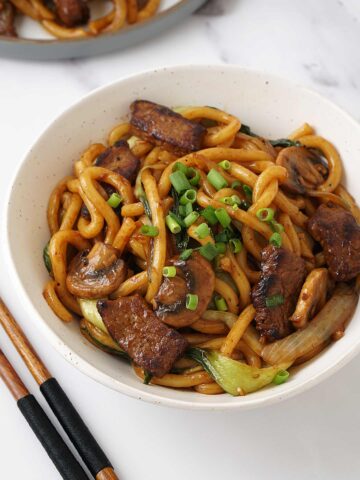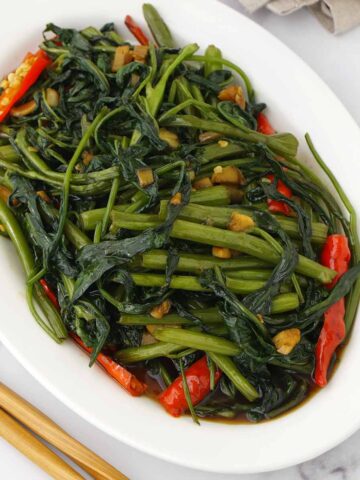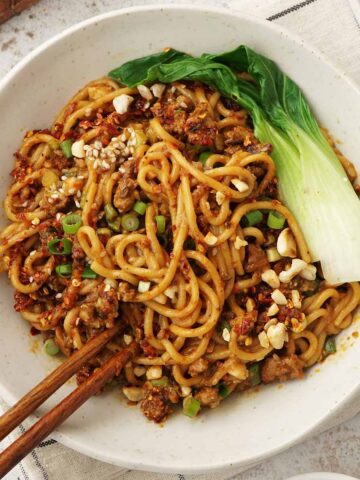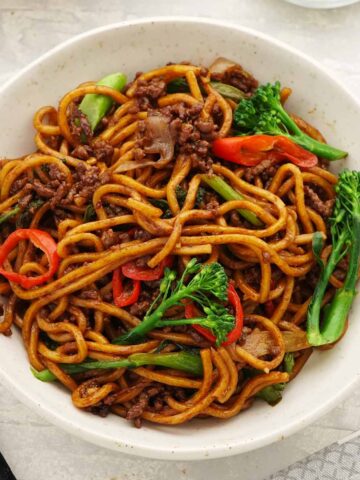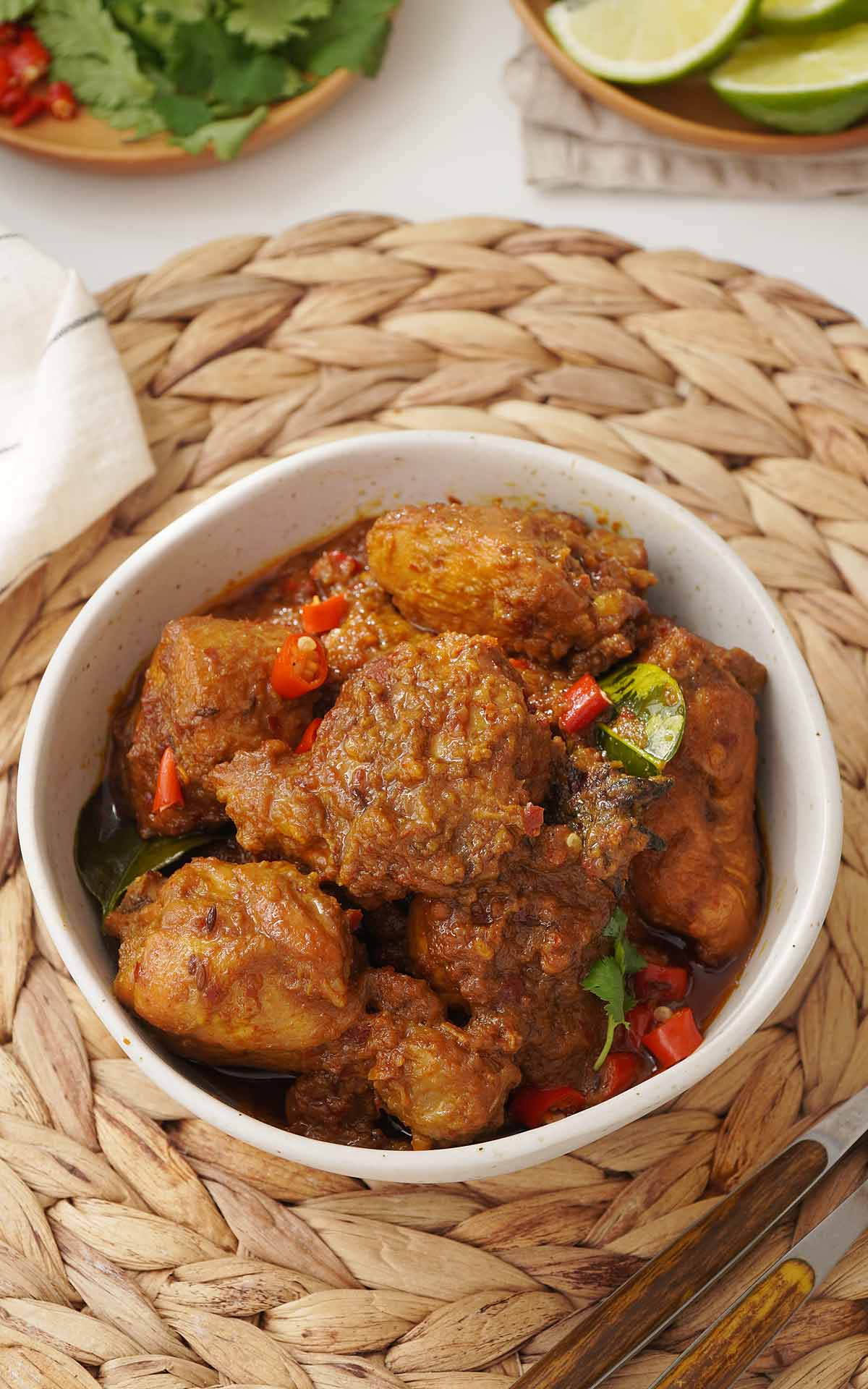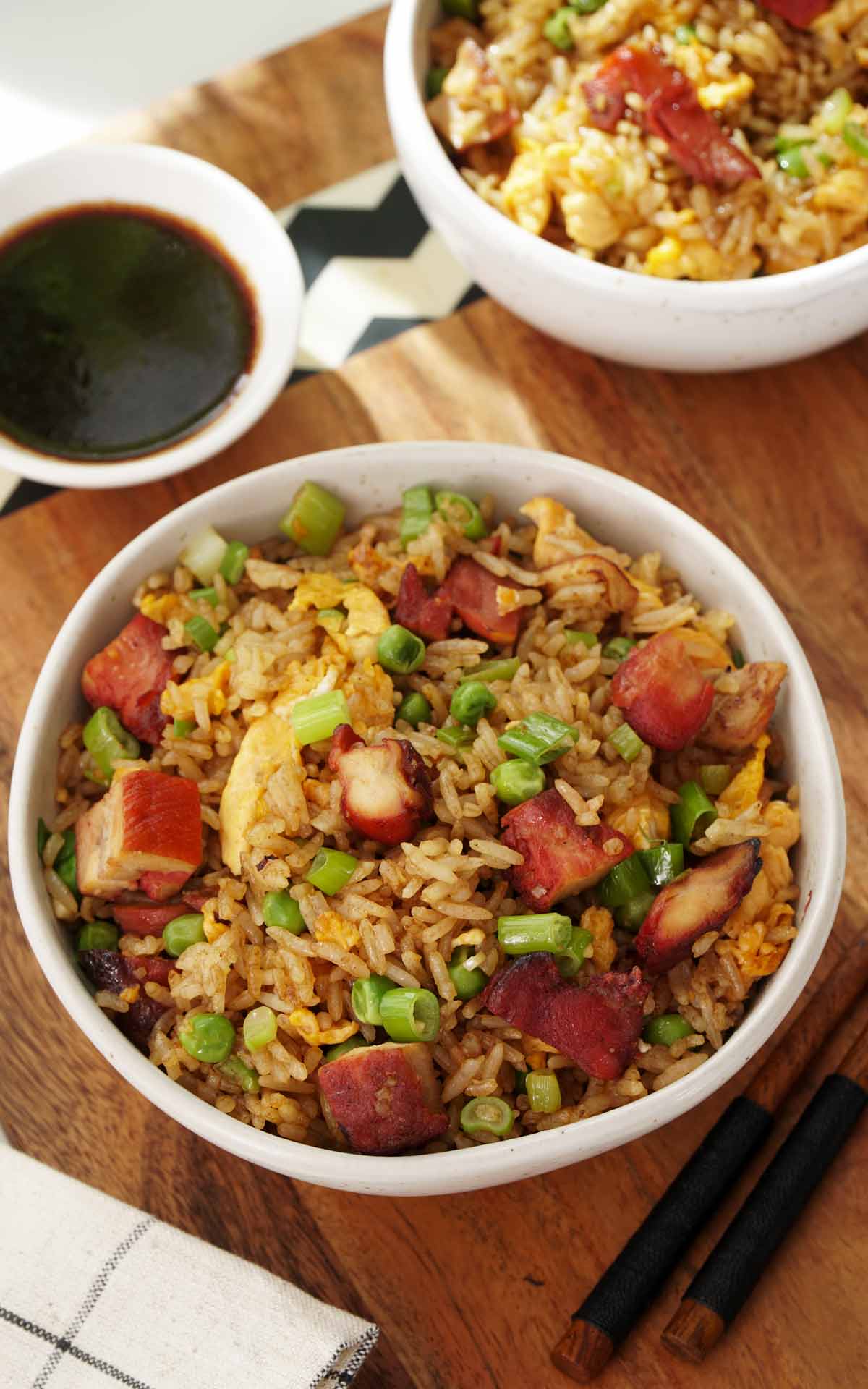Restaurant-style easy pak choi recipe - it’s quick, delicious, and ready in 10 minutes. Crisp tender pak choi loaded with garlic, chilli and savoury glossy sauce. A perfect side dish for any main dish or serve it with rice...
Restaurant-style easy pak choi recipe - it’s quick, delicious, and ready in 10 minutes. Crisp tender pak choi loaded with garlic, chilli and savoury glossy sauce. A perfect side dish for any main dish or serve it with rice or noodles for a simple quick meal.

If you are into Asian veggie side dishes, we’ve got some family favourites like Choy Sum Stir Fry, and Easy Vegetable Stir Fry. They are our go-to recipes and I’m sure you’ll enjoy these dishes also.
[feast_advanced_jump_to]Ingredients
In this recipe, I am using pak choi, though other leafy Asian greens like baby pak bok choy and choy sum work well too.
If you are trying pak choi for the first time, it is a leafy Chinese cabbage and the taste is tender, sweet, and mild. It has a crisp texture stem and vibrant green leaves.

Regular soy sauce, dark soy, oyster sauce, and sesame oil are classic Chinese stir-fry sauces that can be easily found in your kitchen cupboards. Use cornstarch or potato starch to thicken the sauce.
There is no limit for fresh garlic and chillies. I love adding loads of garlic and chillies to the sauce. You might want to adjust the garlic and chillies that suit your liking.
How to Cook Pak Choi with Garlic Sauce
Cooking pak choi is a breeze! You can stir fry, steam, or boil it up. Here is my go-to restaurant-style Chinese pak choi recipe: a quick blanched pak choi with garlic sauce.
Cut and prepare: Rinse pak choi with plenty of water.
Slice it in quarters lengthwise as shown in the photo or slice it into half if it is smaller baby pak choi ( bok choy ). Rewash it with water if there is any stubborn dirt inside.
Combine sauce ingredients: regular soy sauce, dark soy, oyster sauce, cornstarch, water, and sesame oil in a bowl. Whisk it well and set it aside.
Fill a large pot/wok with water until half and bring it to a boil. Hold the leaf part of pak choi in hand and dip the bottom part in the boiling water for about 10-15 seconds.
Then drop the leaves inside and continue to boil for another 5-10 seconds. Strain them immediately and shake the excess water out. Place them over the strainer or paper towel to remove excess moisture.
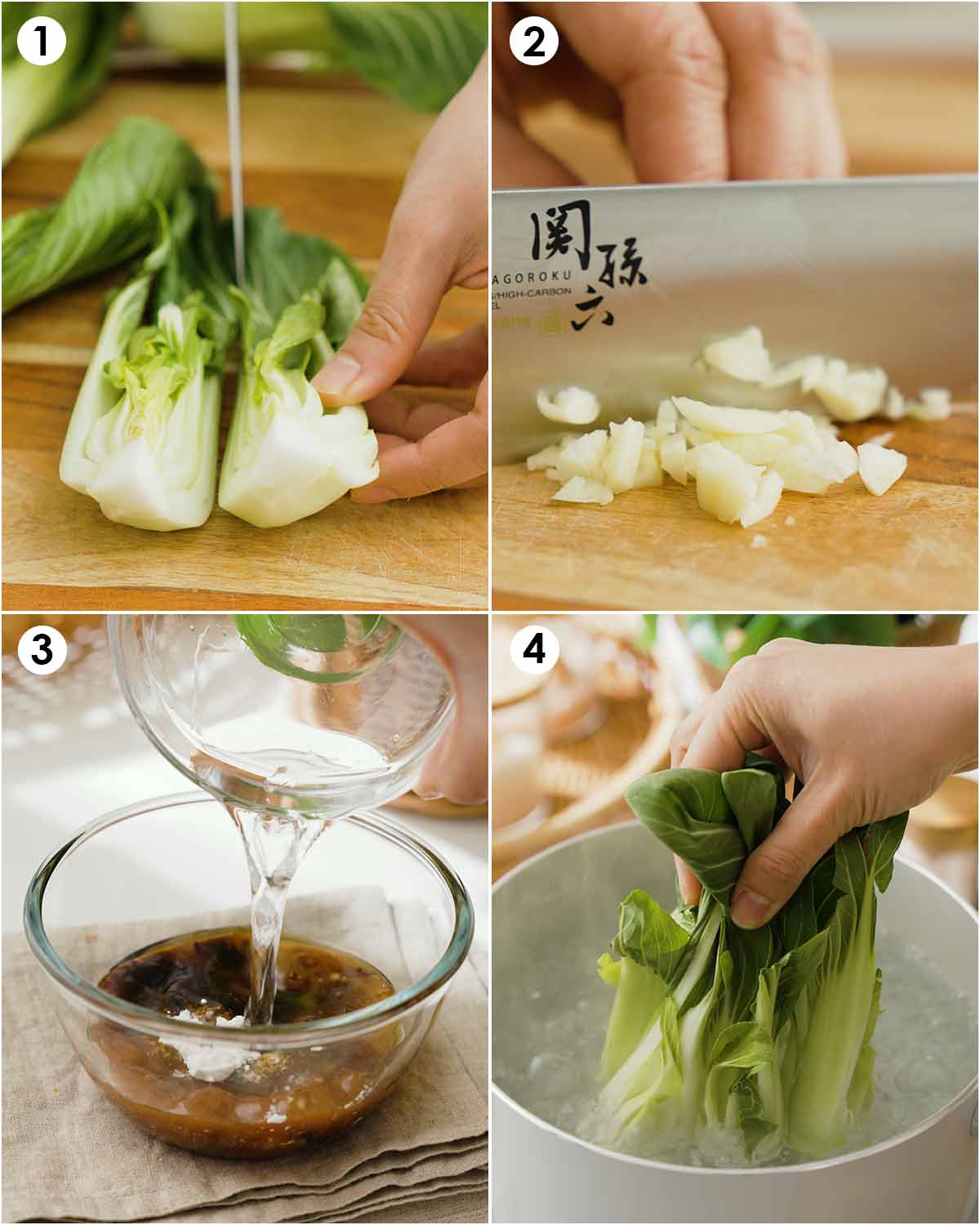
Heat the pan over medium heat and add oil. Saute the chopped garlic for a few seconds until fragrant then add the chopped chillies. Cook until the garlic is light brown. Scoop out 1 tablespoon of fried garlic and chillies and reserve for later use.
In the remaining pan, pour the prepared sauce in. Stir it well until the sauce becomes thick and glossy.
Place the blanched pak choi over the serving plate. Pour the sauce over it. Garnish with reserved fried garlic chilli and enjoy!

Tips and Variations
This garlic sauce goes well for most Asian green vegetables. You just need to adjust the boiling time according to the veggies you use. Harder vegetables like tenderstem broccoli and kai-lan need more time to be cooked.
To make vegetarian/vegan bok choy, swap out oyster sauce for plant-based stir-fry sauce or hoisin sauce.
Adjust the garlic spice levels to suit your taste. If you prefer a milder or child-friendly version, omit the chilli or reduce the amount. For a spicer flavour, add extra fresh chillies, or dried chilli flakes.

Most Asked Questions
It’s a great side dish, but honestly, it’s a delicious meal on its own. Just serve it over a bed of plain rice. My favourite combos are with jasmine rice, egg fried rice, and plain chow mein.
They both are the same leafy Chinese cabbage and are called different names according to the countries, respectively. In the UK, we refer to it as a pak choi, and it’s called bok choy USA and Australia.
Popular pak choi substitutes are choy sum ( Asian mustard greens ), napa cabbage, kai lan ( Chinese broccoli ), swiss chard, and tenderstem broccoli ( broccolini ).
Fantastic ways to enjoy pak choi
Aside from the garlic pak choi recipe, you can throw pak choi into all sorts of stir-fries, ramen, salads, and soups. It's super versatile!
Blanch or steam it and mix it into soup like wonton soup and chicken noodle soup. Just slice and toss it into stir-fries, chow mein, or fried rice. Stir fry it together with chicken, fish, prawns, beef, tofu, or a choice of protein.
If you would like to pair with other easy Asian recipes, Easy beef fried rice or honey chilli chicken recipe are my favourite recipes.
More delicious Asian recipes you can pair with pak choi
Stay updated on our new recipes
We are on social media Facebook, Instagram, YouTube ( New recipe video every week ) , and Pinterest ( Pin your favourite recipes ). If you've tried this recipe, please share your comment or post on social media and tag me. I would love to see your creations and feedback.

Garlic Pak Choi Recipe
Ingredients
Instructions
Notes
Nutrition



